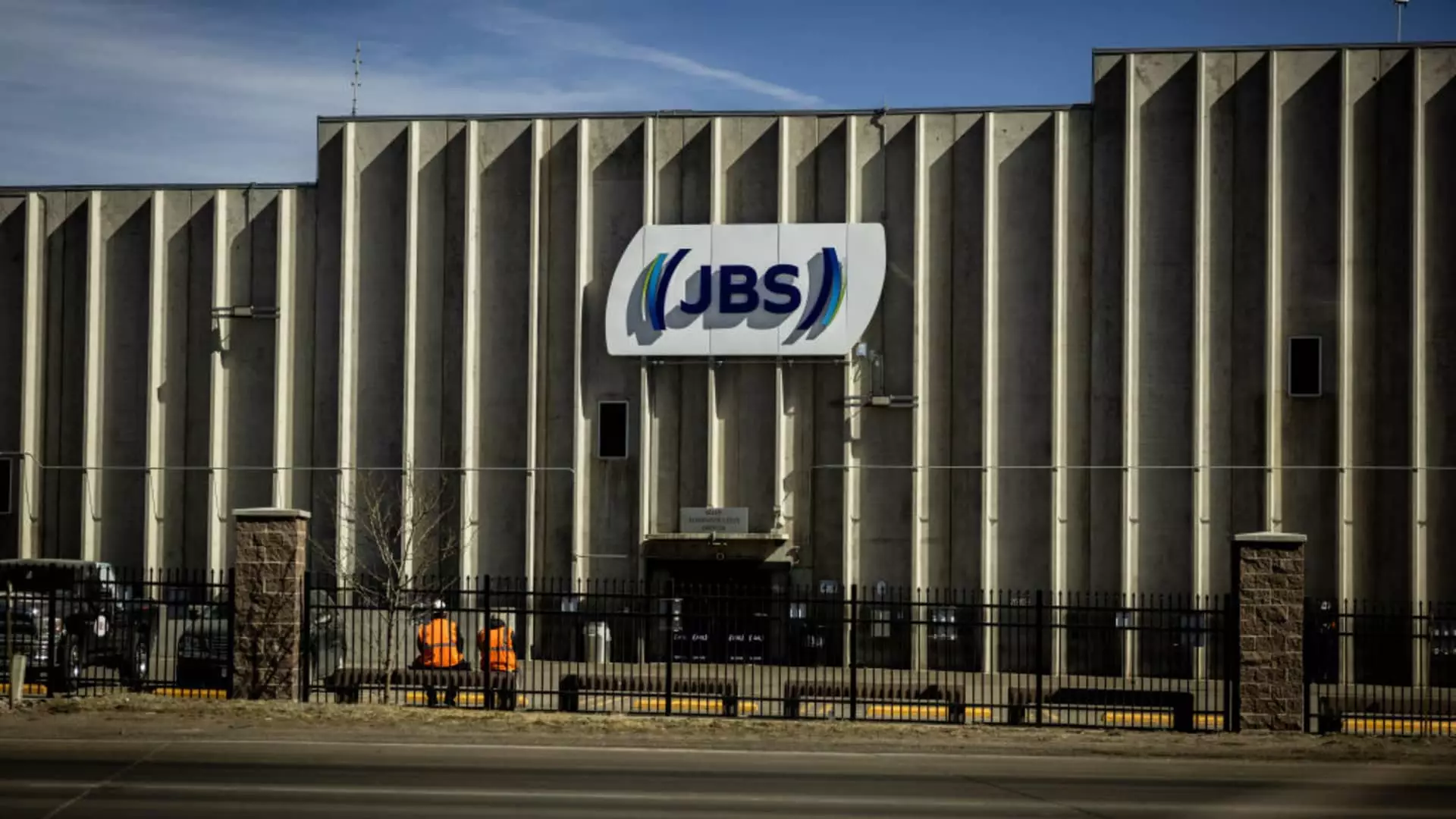In an eye-catching show of ambition, Brazilian meat conglomerate JBS made its long-anticipated debut on the New York Stock Exchange, opening at $13.65 per share and instantly claiming a market valuation of roughly $30 billion. This colossal valuation not only eclipses that of its American counterpart Tyson Foods, which is hovering around $19.82 billion but also marks a significant moment in the meatpacking industry globally. With this move, JBS is acknowledging its status as a powerhouse in a market that has often seen upheaval due to both economic cycles and regulatory scrutiny.
The excitement surrounding JBS’s entry into the U.S. market, however, is tempered by several murky shadows cast over its history. Despite the strategic timing that led to its public offering a day late—attributed to operational delays—the overarching narrative is not one solely of growth and expansion but rather one steeped in scandal and potential ethical concerns. JBS’s turbulent past, including its significant entanglements in bribery and corruption investigations, cannot be ignored as it now seeks to capitalize on the lucrative American sector.
A Legacy Tainted by Scandals
More than just a company, JBS’s journey is emblematic of the duality of corporate success and ethical responsibility. For over seventy years, it has risen from local operations to global meatpacking giant with reported net revenues of $77.2 billion in the previous year alone. However, success has not come without its sacrifices, particularly in the form of its controversial dealings. Accusations of widespread corruption loomed over the company like a dark cloud, particularly during the well-publicized investigations that implicated high-ranking executives, including the influential Batista brothers.
The irony here is palpable: while JBS aspires to be an emblem of American enterprise, it is also synonymous with a corporate culture marred by corruption. The $3.2 billion fine paid to resolve bribery charges in 2017 confirms that the ramifications of unethical corporate behavior can be staggering. Each scandal seems to only reinforce concerns about corporate governance and the implications for shareholders and consumers alike.
Pivotal Moments and Political Connections
What adds another layer to this intricate web of corporate history is JBS’s association with political spheres. Notably, Pilgrim’s Pride—owned by JBS—emerged as a significant player by donating a staggering $5 million to President Trump’s inauguration committee. The sponsorship raised eyebrows all around, prompting discussions around the intertwining of corporate interests, political capital, and regulatory favoritism. Although the company claimed to have a “long bipartisan history participating in the civic process,” this appears to be a convenient narrative that serves to gloss over its tumultuous past.
JBS’s recent fine for its failure to ensure ethical animal procurement practices, particularly concerning cattle raised on protected Amazon land, further complicates its corporate storytelling. These infractions raise substantial ethical questions, challenging any narratives that aim to paint the company as a wholesome part of the meatpacking fabric. If anything, they serve as reminders that sometimes, the allure of profitable expansion comes at a significant moral cost.
Future Prospects: Can JBS Avert Disaster?
As JBS advertises its transformative potential within the American meat industry, one must question whether this behemoth can truly navigate the labyrinth of ethical challenges it faces. Can it maintain tall claims of sustainability and corporate responsibility amid the entrenched shadow of its prior scandals?
With their dual-listing, JBS stands at a crossroads: it has the opportunity to evolve and perhaps set a new standard in the industry, promoting transparency and ethical practices. However, its past serves as a constant reminder that dark secrets could easily resurface, jeopardizing both its stock valuation and public trust.
In an era where ethical consumerism is rising, the real test for JBS lies not in its impressive debut on U.S. markets but rather in its approach to wade through political controversies and fully embrace a stance of accountability. The real challenge isn’t just to operate as a meatpacking financial juggernaut but to guarantee that its trajectory reflects the values of integrity and transparency—elements increasingly sought after by consumers and investors alike.

